-
-
Tools & resources
It looks like you are using an older version of Internet Explorer which is not supported. We advise that you update your browser to the latest version of Microsoft Edge, or consider using other browsers such as Chrome, Firefox or Safari.
How heart failure might be impacting your mood, and what you can do about it
We like to think of our heads and our hearts as opposites. Our heads are for logic and reason while our hearts are how we feel and love.
While this has never exactly been a scientific truth, when it comes to heart failure the picture is even more complex.
In addition to feeling down or anxious about a heart failure diagnosis (which is a very natural and normal reaction), increasingly, changes in mood, memory function, and even decision making are being recognized as direct side effects of heart failure. This is known as cognitive impairment.i
Why is heart failure affecting my mood?
We know that heart failure can reduce the rate at which oxygen-rich blood is pumped around the body.ii This, in turn, can reduce the supply of oxygen and nutrients to vital organs, which can impact their ability to function normally – including the brain. This means that people with heart failure may experience a range of symptoms related to decreased blood flow to the brain, including dizziness, low mood, and reduction in short-term memory.i

Did you know?
The human brain needs around 20%
of the body's total oxygen supply.iii
What can you do?
While this sounds scary, it is important to remember that there are things that you can do to help keep your heart and mind happy.
- Talk to your doctor and / or caregiver: You do not have to face heart failure alone. With proper treatment, the symptoms of heart failure, including those that affect your mind and mood, can be managed and reduced. Your doctor may also recommend appropriate local support groups or counseling.
- Get active: In addition to proper medical treatment, physical activity has been shown to improve the functioning of the brain for heart failure patients. This does not have to be anything extreme – it could be as simple as a gentle walk or light gardening. Find an option that works for you and suits your current health needs.
- Keep track: Awareness of a problem is the first step to solving it. In the same way you may be tracking your weight, energy levels, sleep patterns, and how easy your breathing is, you may find it helpful to keep a mood diary. This can help you to monitor for changes over time so that you are able to report any fluctuations in mood or memory function to your doctor.
- Be kind to yourself: It is very common and understandable to feel down or anxious about a diagnosis of heart failure and so it is important not to judge yourself harshly for periods of low mood. Speaking to a loved one, making time for the activities you enjoy and, most importantly, reaching out for support when needed can all help combat anxiety around heart failure.
Related content


Oberdan's story
"My immediate reaction to the diagnosis was to fight, to not give in. Not to let the illness win, but to beat it."

Talking to your doctor
It’s important to take time to talk to your doctor about your heart failure. Click here for some tips.
(i) Efthimios Dardiotis, Gregory Giamouzis, Dimos Mastrogiannis, et al. Cognitive Impairment in Heart Failure, Cardiology Research and Practice, 2012 (2012)
(ii) Harrison’s ‘Principles of Internal Medicine’, Seventeenth Edition pages 1442 - 1455
(iii) Raichle, Marchus E and Gusnard, Debra A, Appraising the brain’s energy budget, PNAS 2002;99 (16) 10237 – 10239
